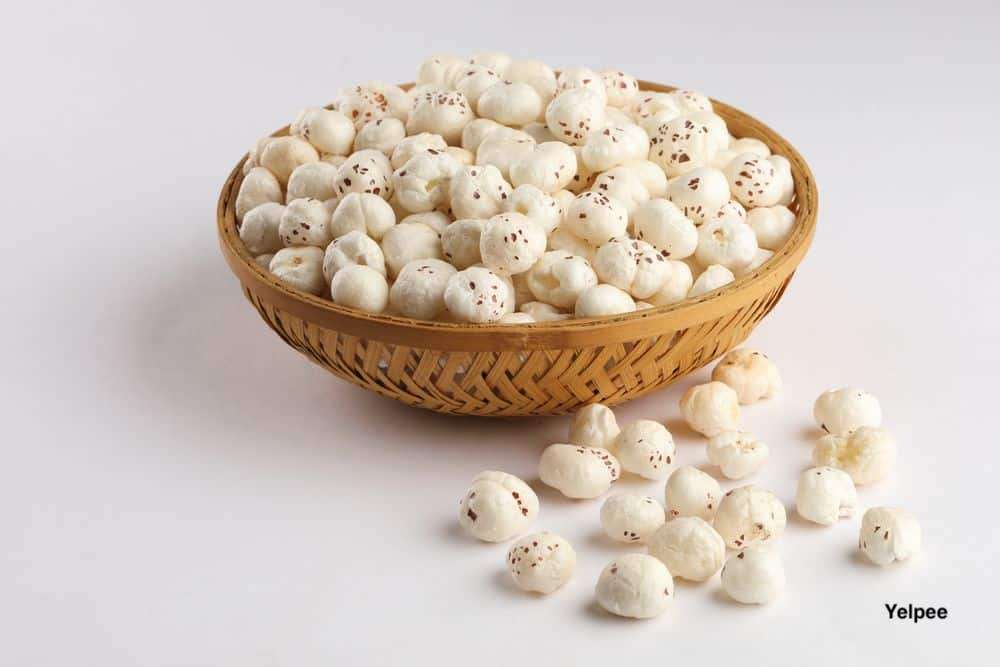Exploring the Cinnamon Plant: Growth, Varieties, and Essential Benefits. Cinnamon, a beloved spice renowned for its delightful aroma and warm, sweet flavour, originates from the bark of trees belonging to the Cinnamomum genus. Its growth, various varieties, and the essential benefits it offers to our health.
Cinnamon Plant
Cinnamon is derived from the inner bark of certain evergreen trees within the Cinnamomum genus, primarily Cinnamomum verum (Ceylon cinnamon) and Cinnamomum cassia (cassia cinnamon). These trees are native to various regions of Asia and have been cultivated for centuries for their aromatic and medicinal properties. Here, we will explore the key aspects of the cinnamon plant:
Growth and Cultivation
- Origin: The cinnamon plant has a rich history dating back to ancient times. It was highly prized by the Egyptians and was used in their embalming process. In medieval Europe, cinnamon was considered a symbol of luxury and wealth.
- Geographical Distribution: Cinnamon trees are native to several Asian countries, including Sri Lanka (Ceylon cinnamon), Indonesia, China, and Vietnam. They thrive in tropical and subtropical climates with well-drained soil and plenty of rainfall.
- Plant Characteristics: Cinnamon trees are small to medium-sized evergreen trees that can reach heights of 20-30 feet (6-9 meters). They have shiny, leathery leaves and produce small, inconspicuous flowers. The real treasure lies beneath the bark.
- Harvesting Cinnamon: The inner bark of the cinnamon tree is what we commonly refer to as cinnamon sticks or quills. To harvest cinnamon, skilled workers carefully peel away the outer bark, revealing the fragrant inner layers. These layers are then dried and rolled into the familiar cinnamon sticks or ground into powder.
Varieties of Cinnamon
Cinnamon comes in different varieties, each with its unique flavor profile and properties. The two primary types of cinnamon are Ceylon cinnamon and cassia cinnamon:
- Ceylon Cinnamon (Cinnamomum verum): Also known as “true cinnamon,” Ceylon cinnamon is considered the highest quality variety. It has a delicate, sweet flavour with citrus undertones. Ceylon cinnamon is often preferred for culinary uses where a subtle and nuanced flavour is desired.
- Cassia Cinnamon (Cinnamomum cassia): Cassia cinnamon, sometimes referred to as “Chinese cinnamon,” has a stronger, spicier flavour compared to Ceylon cinnamon. It is the variety commonly found in most grocery stores and is often used in baking and cooking.
Both varieties offer health benefits, but Ceylon cinnamon is generally considered safer for regular consumption due to lower levels of coumarin, a compound that can be harmful in large quantities.
Essential Benefits of Cinnamon
Now that we’ve explored the cinnamon plant and its varieties, let’s delve into the essential benefits that cinnamon offers to our health and well-being:
- Antioxidant Powerhouse: Cinnamon is loaded with antioxidants, which are compounds that help protect the body from oxidative stress and free radical damage. The antioxidants found in cinnamon, including polyphenols, can neutralize harmful free radicals, reducing the risk of chronic diseases such as cancer, heart disease, and neurodegenerative disorders like Alzheimer’s and Parkinson’s disease.
- Blood Sugar Regulation: One of the most well-known benefits of cinnamon is its ability to improve insulin sensitivity and regulate blood sugar levels. Studies have shown that cinnamon can lower fasting blood sugar levels and improve insulin resistance, making it a valuable ally for individuals with type 2 diabetes or those at risk of developing the condition. This effect is attributed to compounds in cinnamon that mimic insulin and enhance its signaling.
- Anti-Inflammatory Properties: Chronic inflammation is a key contributor to many chronic diseases, including arthritis, heart disease, and cancer. Cinnamon contains anti-inflammatory compounds that can help reduce inflammation in the body. By inhibiting the release of pro-inflammatory molecules, cinnamon may provide relief from inflammatory conditions and support overall health.
- Heart Health: Cinnamon can contribute to a healthy heart in several ways. It can help lower levels of total cholesterol, LDL (bad) cholesterol, and triglycerides while increasing HDL (good) cholesterol. Additionally, its anti-inflammatory and antioxidant properties can protect against atherosclerosis, a condition characterized by the buildup of plaque in the arteries. Regular consumption of cinnamon may reduce the risk of heart disease and improve overall cardiovascular health.
- Antimicrobial and Antibacterial Effects: Cinnamon has a long history of use as a natural preservative and antimicrobial agent. Its essential oils, such as cinnamaldehyde, have potent antimicrobial and antibacterial properties. They can help inhibit the growth of bacteria, fungi, and even certain parasites. This makes cinnamon a valuable spice for food preservation and a potential natural remedy for infections and digestive issues.
- Cognitive Benefits: Cinnamon’s impact extends to cognitive health. Some studies suggest that cinnamon may enhance cognitive function and improve memory. Its antioxidant and anti-inflammatory properties play a role in protecting brain cells from damage and inflammation, which are associated with age-related cognitive decline and neurodegenerative diseases.
- Weight Management: Cinnamon may also aid in weight management and metabolism regulation. It can help control cravings by stabilizing blood sugar levels, reducing insulin resistance, and improving satiety. By promoting a feeling of fullness, cinnamon can potentially lead to reduced calorie intake, making it a valuable addition to weight loss and management strategies.
- Gastrointestinal Support: Cinnamon has been used for centuries to alleviate digestive discomfort and support gastrointestinal health. It may help reduce bloating, gas, and indigestion. Additionally, its antimicrobial properties can be beneficial in addressing certain gastrointestinal infections.
How to Incorporate Cinnamon into Your Diet
To harness the incredible benefits of cinnamon, it’s essential to incorporate it into your diet in various ways:
- Sprinkle it on Oatmeal or Cereal: A simple and delicious way to enjoy cinnamon’s benefits is to sprinkle it on your morning oatmeal or cereal. It adds flavor and nutrition to your breakfast.
- Use it in Baking: Cinnamon is a versatile spice that can enhance the taste of baked goods like muffins, pancakes, and cookies. It also pairs well with apples, making it a great addition to apple pies and crisps.
- Blend it into Smoothies: A dash of cinnamon can elevate the flavor of your smoothies while providing health benefits. Try adding it to banana, almond milk, and honey smoothies for a tasty treat.
- Brew Cinnamon Tea: Cinnamon tea is a soothing and health-promoting beverage. Simply steep a cinnamon stick or a teaspoon of ground cinnamon in hot water and enjoy.
- Season Vegetables: Cinnamon can be used to season roasted or sautéed vegetables. It pairs particularly well with sweet potatoes, carrots, and butternut squash.
- Spice up Coffee and Tea: Enhance the flavour of your coffee or tea by adding a pinch of cinnamon. It can provide a warm and comforting twist to your daily beverages.
Cautions and Considerations
While cinnamon offers a multitude of benefits, it’s important to use it in moderation and be aware of some potential considerations:
- Cassia vs. Ceylon Cinnamon: There are two main types of cinnamon available, cassia and Ceylon cinnamon. Cassia cinnamon contains higher levels of coumarin, a compound that may be harmful in large amounts. Ceylon cinnamon is considered safer for regular consumption.
- Allergies and Sensitivities: Some individuals may be sensitive or allergic to cinnamon. If you experience adverse reactions like skin rashes or difficulty breathing after consuming cinnamon, seek medical attention.
- Interaction with Medications: Cinnamon supplements or large amounts of cinnamon in the diet may interact with certain medications, particularly those that affect blood sugar levels or blood clotting. If you are taking medications, consult with a healthcare professional before adding cinnamon to your daily routine.
In conclusion, the cinnamon plant, with its fascinating varieties and numerous health benefits, has been cherished for centuries for both its culinary and medicinal properties. Whether you prefer the delicate sweetness of Ceylon cinnamon or the spicier notes of cassia cinnamon, incorporating this aromatic spice into your diet can be a flavorful and healthful choice. From regulating blood sugar to supporting heart health and offering antimicrobial protection, cinnamon truly deserves its status as a prized and essential spice in our kitchens and our lives.
By Daleep Singh



